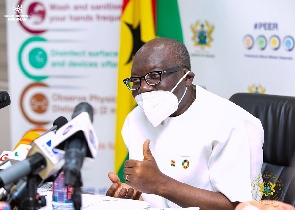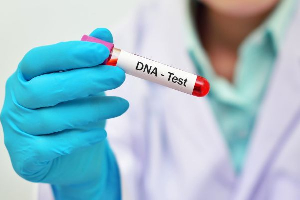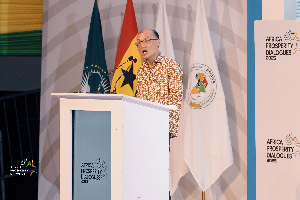Government has indicated it has been able to protect jobs despite the harsh realities visited on the economy by COVID-19.
Ken Ofori-Atta, Finance Minister, who disclosed this on Sunday at a media briefing in Accra, said “Fortunately, we have been able to preserve jobs in the public sector in spite of the COVID-19 pandemic. We acknowledge that as a nation we need to do more to ensure decent incomes for all Ghanaians.”
However, he said even at such levels, compensation of public sector employees represented 52.4 per cent of domestic revenue.
“We introduced, restored, or enhanced social protection policies to support the vulnerable and address the pertinent issue of joblessness. These interventions include the Free Senior High School Programme with over 1.2 million enrolments, the Zongo Development Fund Programme, School Feeding Programme with over 3.4 million beneficiaries, Livelihood Empowerment Against Poverty (LEAP) Programme with over 334,084 households, Nations Builders’ Corps (NABCO) with 100,000 beneficiaries, allowances for Teacher Trainees for some 47,135 beneficiaries, and allowances for Nursing Trainees with some 50,825 beneficiaries.
He continued, “We took a financial sector on the brink of collapse, cleaned it to build a more robust financial ecosystem that is well capitalised, liquid, and solvent to fund our development. By this initiative, we saved the hard earned savings of 4.6 million depositors, 81,700 investors and protected 3,000 direct jobs.”
On the fiscal front, the minister indicated that the impact of the pandemic led to a downward revision of revenues by GH¢13.4 billion (3.5% of GDP) and expenditures by an additional GH¢11.8 billion (3.1% of GDP) with a combined fiscal impact of GH¢25.2 billion (6.5%of GDP).
“As a result of the President’s quick and decisive leadership, the government came through for its citizens, responded swiftly and strongly even as tax collections were drying up. As a result, the government spent about GH¢8,134 million (about 8.1% of Expenditures and 15.1% of Domestic Revenues) to preserve livelihoods.
“The government fully covered the consumption of electricity for the over 1 million lifeline customers and subsidised 50 per cent of the consumption of all other customers for the period.
“Over 10 million fellow Ghanaians benefited from free water supplied by Ghana Water Company Limited between April to December, 2020. As a result, the average monthly water supply of 9.24 million cubic metres increased by 43.21% to reach 13.23 million cubic metres. Furthermore, 474 small towns and 1,143 rural communities benefited from the Community Water and Sanitation Agency (CWSA),” the minister indicated.
He continued that the government launched and operationalised the GH¢750 million Coronavirus Alleviation Programme – Business Support Scheme (CAP-BuSS) which mitigated the impact of the pandemic on several micro, small and medium-sized enterprises (MSMEs).
“At the end of April 2021, about GH¢412.88 million had been disbursed to support 277,511 businesses; 69% being female-owned. The scheme has saved over 650,000 MSME jobs,” he indicated.
He pointed out that there were some non-recurrent burdens that government had to deal with as a matter of urgency.
These included the Fiscal Impact of COVID-19 – GH¢ 25.2 billion; Cost of Financial Sector Clean up – GH¢21 billion; Cost of Excess Capacity Charges paid to IPPs – GH¢12 billion; the impact of the reduction in growth from an average of 7% (2017-2019) to 0.4% in 2020.
“If these expenditures are excluded, and the drop in GDP growth in 2020 primarily attributable to the COVID-19 pandemic is taken into account, the total stock of debt for 2020 would have been approximately GH¢238.9 billion, implying a debt to GDP ratio of 58.7%, which is below the ECOWAS threshold of 70%.
“To put things into perspective between 2004 and 2008, Ghana’s debt stock increased by 30%. Between 2008 and 2012, the debt stock increased by 269% while between 2012 and 2016, the increase in the debt stock was 243%.
Between 2016 and 2020, the increase in Ghana’s debt stock was 137% (this includes the cost of the banking sector clean-up, excess capacity charges and the impact of the COVID-19 pandemic).”
He also gave assurance that by the end of July, “We will have a new Development Bank that will provide long-term wholesale financing to the private sector through commercial banks.”
Business News of Wednesday, 12 May 2021
Source: goldstreetbusiness.com

















